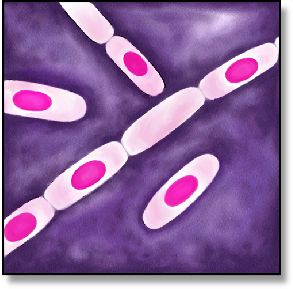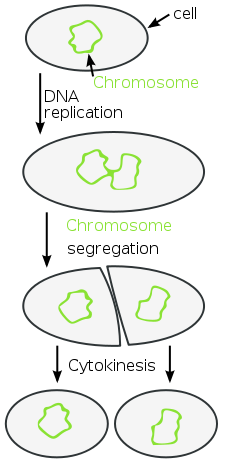Adaptation
Why don't we just get rid of Bacillus cereus you
might ask. People do make attempts to get rid of the bacteria,
but because it is so well adapted, it is very difficult. In the
article Properties of Bacillus cereus and other bacilli
contaminating biomaterial-based processes of the International Journal of Food Microbiology,
a study is done to test the effectiveness of current
Bacillus cereus detection
procedures for food companies. In the study, the current method
failed to recognize eight out of the thirty-four
Bacillus cereus isolates,
proving unreliable. Besides the inability of food companies to
detect Bacillus cereus,
there are other reasons why this bacteria is so successful.
Adaptations are vital to many organisms ,
without adaptations organisms would go extinct. Adaptation are
altered or adjusted characteristics to an organism that makes
them more suitable for survival, often through the process of
evolution by natural selection.
,
without adaptations organisms would go extinct. Adaptation are
altered or adjusted characteristics to an organism that makes
them more suitable for survival, often through the process of
evolution by natural selection.
Endospores- Endospore formation is a characteristic of the order bacillales. The formation of endospores (shown right) by Bacillus cereus has proven to be one of the major factors in the bacteria's success. When the environment is not suitable for Bacillus cereus it will form an endospore. The ability to form an endospore has allowed Bacillus cereus to survive in very harsh conditions, often times it will with stand the cooking of your food and still be present when you think the food is cooked! See facts for more on food. Also, bacterial spores have been found by scientists that are estimated to be forty million years old on Earth!
Movement- For movement, Bacillus cereus possess peritrichous flagella. Peritrichous flagella are flagella that surround the entire surface of the organism which in most cases allows the organism to move in their environment. The ability of movement bacillus cereus, from my research, has not been proven to be a monumental adaptation, but has been proven to be useful to the bacteria at times when movement is needed.
 Fast evolution- Like most bacteria, Bacillus cereus
also has the capability to reproduce very fast and efficiently. This allows
for fast evolution by natural selection. This means that the offspring from
the parent cell will either die off or survive based on their ability to
survive in the current environment. Those who survive are the best suited
for the environment, and will in turn give off offspring that will possess
the same traits that allowed for the parent to be so successful in the
environment. Learn more about reproduction
here!
Fast evolution- Like most bacteria, Bacillus cereus
also has the capability to reproduce very fast and efficiently. This allows
for fast evolution by natural selection. This means that the offspring from
the parent cell will either die off or survive based on their ability to
survive in the current environment. Those who survive are the best suited
for the environment, and will in turn give off offspring that will possess
the same traits that allowed for the parent to be so successful in the
environment. Learn more about reproduction
here!
Plasmids- What are plasmids? Plasmids are circular molecules
of DNA that can replicate independently of the chromosomal DNA. Often times
plasmids contain genes that are beneficial for survival. These genes can be
transferred from one individual to another through horizontal gene transfer
(traditional reproduction either by sexual or asexual means) which is
believed to be the cause of drug resistance in bacteria.
Want to hear about some more unique adaptations by different organisms? Search MutipleOrganisms.net! I recommend looking at the harp seal, the magic mushroom, or the sea cucumber!
So how are all these features fueled? What provides them with energy,
what makes this monster go!? Click here
to look at nutrition!
MultipleOrganisms.net
Home page
Contact me